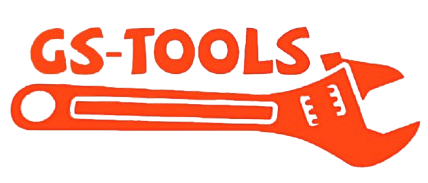
The “pink cloud” can also be thought of as looking at life through rose-colored glasses. You are learning the tools you need to achieve your goal of sobriety, and returning to rehab will strengthen the tools you have, and give you more options to choose from in your future. Keep in mind that once you leave rehab, you can’t fix all your problems alone, and it can’t Substance abuse all be done in a single week. In order to head down a steady path of recovery don’t try to take on too much at once. This is still a fragile time, and the slightest thought of failure or not living up to expectations can trigger disappointment and a potential relapse.
- He utilizes positive psychology as much as possible during his counseling sessions.
- There are also other factors you should consider when looking at the cost of rehab, such as the duration of the program and the length of aftercare.
- Here, we provide a thumbnail view of four stages of recovery used in many treatment programs, including, pre-contemplation, contemplation, preparation, and action.
- Some addicts slip and immediately get right back into a meeting and begin the process of recovery anew.
- Caitlin is our client’s family’s point of contact during the program.
How To Find A Rehab Center After A Relapse
However, many people who relapse end up getting stuck back in the cycle of addiction–a cycle that only a treatment program can break. Drug and alcohol relapse occurs when you begin abusing substances after experiencing a period of intentional abstinence. Either you did not receive the effective principles of addiction treatment or you stopped practicing your recovery maintenance techniques. Regardless, relapse means you are missing some of the tools you need to maintain long-term recovery, causing you to experience an addiction relapse. Recovery coaches are also an important support person for the family members who have an addicted loved one.
Insurance
No one likes the idea of having to return to rehab, but it can quite possibly save your life. Please reach out to a treatment provider if you need help finding a rehab after relapse. You don’t need to tell recruiters or interviewers your entire life story.
What To Ask Yourself Before Determining If You Need To Return To Rehab
The road to recovery is never a straight one and experiencing relapse after rehab is more common than you think. While relapse doesn’t mean that treatment didn’t work, it can indicate the need for a revision in how the individual is coping with their sobriety. In other words, relapse, cravings, and other struggles in recovery may indicate that something must change. If you’re still on the fence, below are some reasons why you should consider going back to rehab.
Working at a soup kitchen, volunteering at the local animal shelter, or helping teens and children may all be what makes your life worth living. Many addicts mistakenly think that going to treatment alone will be enough to keep them sober. back to rehab Another enemy of addicts is the fact that in early recovery, many addicts feel so good and so strong that they don’t believe relapse is possible. When a slip happens, they may feel so much remorse and disappointment that they feel the need to rush back into rehab to get help. When you go back to rehab, you will participate in relapse prevention therapy so you can identify the causes behind your relapse and what you can do to prevent it from happening again in the future.
Should I Go Back To Rehab After A Drug Or Alcohol Relapse?

In fact, as time goes on and these associations are strengthened, dopamine release will increase in response to these environmental drug cues and may be accompanied by strong cue-dependent cravings. These brief outpatient treatments may be beneficial in many ways, including avoiding the need to enter a more extensive rehabilitation facility. This follow-up service may be provided to you by the rehabilitation program that you first attended, or a nearby treatment facility may be able to offer these sessions to you.
- Because alcohol abuse alters the brain’s basic structure and function, negative changes can persist even after alcohol use has ceased.
- Rehab facilities can assist with these additional needs of a patient while also treating an AUD.
- This includes keeping up with hygiene, household chores, going to work, attending school, caring for family, and more.
- Submit your number and receive a free call today from a treatment provider.
- Gaining 35 pounds during the course of dieting from a continued poor diet, would be considered a relapse.

Thomas has worked at EAS for over https://ecosoberhouse.com/ 12 years and has held every clinical role in the company. Thomas has been in the Santa Cruz area his whole life and is proud to serve his community in fighting addiction one client at a time. Chad has been a valued member of Elevate for three years, bringing over two decades of construction and maintenance experience to the team. He is responsible for overseeing property upkeep, daily facility operations, off-campus housing, and the vehicle fleet. Chad’s deep expertise across all phases of construction plays a vital role in maintaining and repairing the facility and ensuring seamless operations. Our highly trained treatment specialists will work with you and help you make addiction a part of your past.
I’ve had experience with recovery since 1996 and began working in the field in early 2004. Going back to rehab after a relapse is usually the last thing someone wants to do, but it is the most reliable way to help them back to the path to sobriety. Keep away from triggers that will increase the likelihood of escalating relapse. For example, someone with an alcohol use disorder should avoid going to a bar or seeing their old drinking buddies. It is vital for those experiencing relapse to know that it is perfectly normal and in no way means that they have failed or are not worthy of living a happy, sober life. Addiction is a complex, chronic medical condition that can significantly impact our brains and behavior.1,2 As part of this complexity, relapse is an ever-present risk.
IS IT A SLIP OR A RELAPSE?

Unrealistic expectations are another factor, including the belief that sobriety will cure all of life’s problems. Many people also fall into the trap of making changes only regarding drug or alcohol use, while ignoring other necessary lifestyle changes. This can lead to the contemplation stage, although people may fluctuate between either or both of these phases for years before actually moving on to the preparation and action stages. Sometimes, a person may relapse back to one of these stages, as they struggle to maintain their recovery.
You need to put down deep roots in recovery, give yourself time to grow, and then your many branches or relationships can strengthen and support others. Give yourself that time in recovery and your relationships will blossom. Your recovery plan for success can lead you to new and exciting places. Discovering your purpose, creating a plan, enacting it and celebrating everyday successes are all positive ways to reinforce your recovery. People tend to do better with lifestyle changes when they have a plan for how to achieve them.
